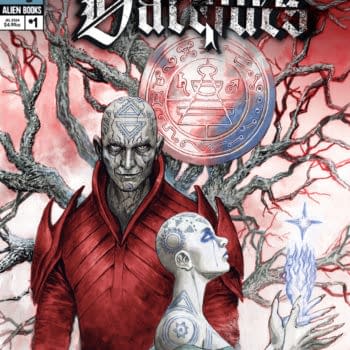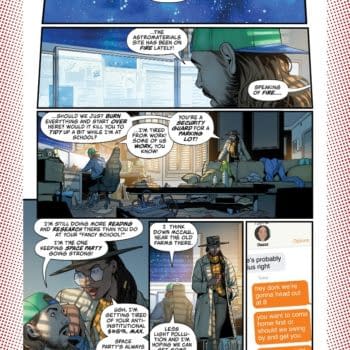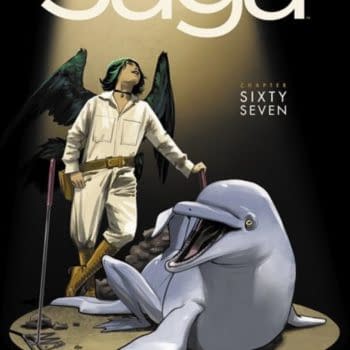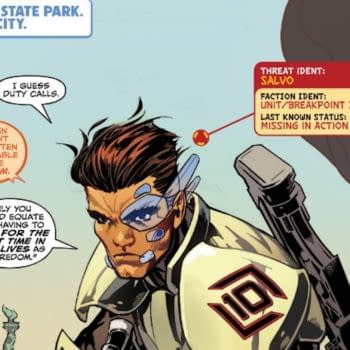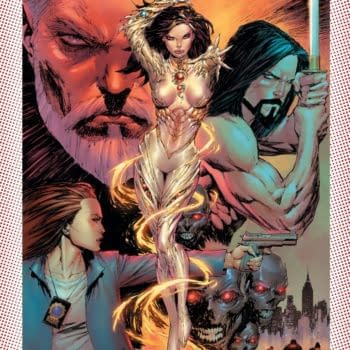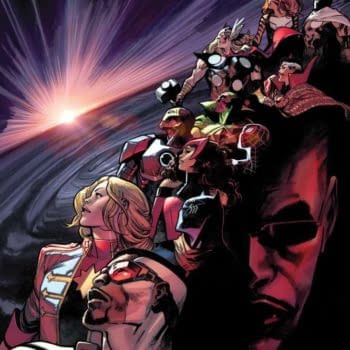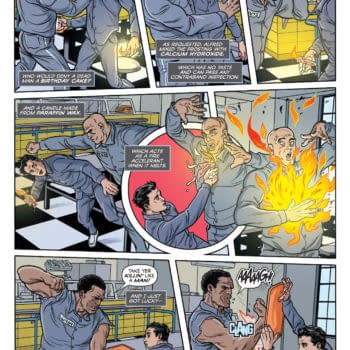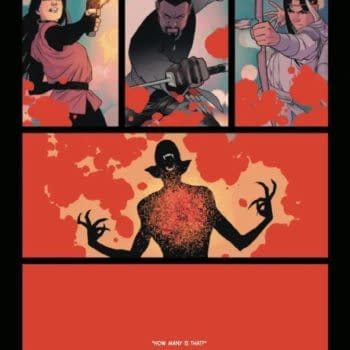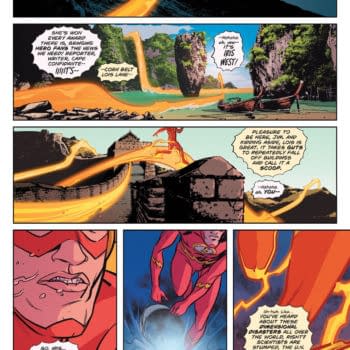Posted in: Comics, NYCC | Tagged: new york comic con, NYCC, nycc18
Women in [Everything]: Intersectional Feminism Across Genres
By Amanda Gurall
For those not aware, intersectional feminism stands for supporting the rights and empowerment of all women and celebrating our differences like race, class, sexuality, gender and abilities which has evolved from the cis white lady feminism that has been more prevalent in our society. How do we integrate this into entertainment genres and why?
Moderator Sam Maggs (The Fangirl's Guide to the Galaxy, Wonder Women) was joined by five writers Thursday at NYCC to discuss the effort to incorporate intersectional feminism across all genres of media. Wendy Xu (Mooncakes, Dream Daddy), Jill Pantozzi (Thenerdybird.com, pop culture journalist), Christina 'Steenz' Stewart (Lion Forge Comics, Archival Quality), Charlie Jane Anders (Founder and co- editor of io9, All Birds in the Sky), and Susana Polo (Founder of The Mary Sue, entertainment editor for Polygon.com) welcomed a full audience.
The writers spoke briefly on both the women in pop culture who influenced them as children and about the moment they realized that their internalized misogyny was an issue. Susana Polo said that when she was growing up she was given the message that girls were boring and had boring roles in most media and she accepted that as a child. She brought up the fact that realizing that Robin had his own identity yet Batgirl was just a watered down "girl" version of Batman was a huge moment for her. Additionally she realized that when she was young she was influenced by the majority who had a louder voice in what she should look and speak like as a Puerto Rican until she realized that was ridiculous and claimed her identity for herself. These are ingrained messages that usually require identifying the causes in society then working to change the big picture when you can.
Wendy Xu was asked if she identifies as a feminist, or what that word means. "My first instinct when you asked that was, 'Don't put me in a box because I've been put in a box my life. You're this you're that. You're Asian, you're a girl, you have to be all of these things.' I would never put Intersectional Feminist on my Twitter profile. But I think the ideals are obviously really important or I wouldn't be here. For me the word is so loaded because I associate it with whiteness. I feel like personally I almost don't want to claim it even though I believe in equality, obviously.. I am still trying to figure out how I feel about that word, all of the implications it has for women of color and everything else that mainstream feminism has left behind."
She went on to speak about active listening which was a major point that several panelists also drove home and is certainly the key to making any kind of social progress. It takes a conscious effort for most people to stop and truly listen without their fears and preconceived notions getting in the way, particularly if you've lived your life as part of the majority. Social media has been instrumental in this, noted Steenz, not only to share but to build supportive communities and families of our own.
What is the responsibility of the artist? If one wants to write a story do they have to include characters that are marginalized and outside of their identity or should they stick only to what is familiar?
Charlie Jane Anders feels that as a white creator she absolutely has a responsibility to represent everybody in the world around her but noted that doing so must come from doing the research that is required to respectfully and accurately portray these characters. "I also feel that we need more people of color and other marginalized people writing their experiences in YA (young adult fiction.) We are just at the start of that being a thing in the last few years and it's not enough."
Jill Pantozzi was reminded of something she recently learned about the Twilight films and Stephanie Meyer's insistence that all of the good vampires be white. Apparently the descriptor "porcelain skin" was a deal breaker for her. Meyer had no issue allowing villainous characters to have darker skin. This is the perfect example of a writer failing to respect and include anything but their own bias in their influential work.
"At the end of the day intersectional feminism means wanting equality for people of all ethnicities, genders, races, abilities, queerness, sexuality….if you don't want that I feel like that makes you…maybe an asshole," Sam Maggs said, summing up the panel and the ideals perfectly.


![Women in [Everything]: Intersectional Feminism Across Genres](https://mlpnk72yciwc.i.optimole.com/cqhiHLc.IIZS~2ef73/w:600/h:305/q:75/https://bleedingcool.com/wp-content/uploads/2018/10/IMG_6083.jpg)
![Women in [Everything]: Intersectional Feminism Across Genres](https://mlpnk72yciwc.i.optimole.com/cqhiHLc.IIZS~2ef73/w:600/h:450/q:75/https://bleedingcool.com/wp-content/uploads/2018/10/IMG_6089.jpg)




